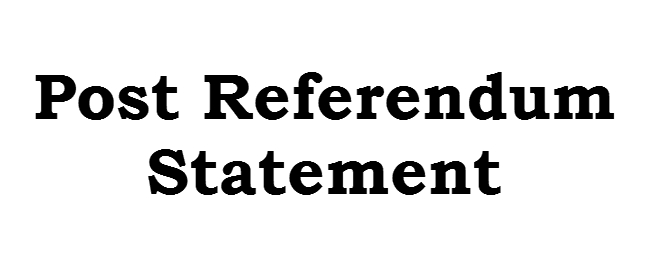In the run up to the referendum, people in Scotland engaged in vibrant discussions about what type of country they want for themselves, their families, their communities and for the country as a whole.
Oxfam Scotland remained neutral in the independence debate, however, the people of Scotland have now decided to remain within the United Kingdom.
Over the coming months, we must build on this extraordinary level of public engagement to build a fairer and more equal country which delivers a decent standard of living for everyone.
Those advocating a ‘No’ vote have promised to devolve additional powers to the Scottish Parliament.
The process determining the nature of those powers must be participatory and learn from the approach taken by the Oxfam Humankind Index: we must ask people their priorities and reach out to seldom heard voices.
As we know from our work with partners in Scotland, right now, too many people in Scotland – including a scandalous number of children – live in poverty: this cannot continue. We must work together to build a country for everyone, not just a wealthy and powerful minority.
To do this we must tackle the root causes of poverty and inequality.
We must, for example, create a welfare system that protects our most vulnerable people and ensure the economy creates sustainable and satisfying jobs.
But we must also extend our gaze outwards to think about Scotland’s role in building a more just world; a devolved Scotland can and should develop as a progressive global force.
Within existing international development work, all parties in the Scottish Parliament signalled – prior to the referendum – their support for ensuring Scotland doesn’t give with one hand whilst taking away with other.
We therefore look forward to building on this consensus to embed a coherent approach to international development which captures the impact of all of Scotland’s actions on the world’s poorest people.
On climate change, there must be a renewed focus on delivering Scotland’s world leading targets whilst recognising our moral duty to help those affected by the climate change we helped cause.
Above all, both sides in this debate wanted the best for the people of Scotland.
It is now incumbent on all of us to work together to ensure – both at home and abroad – that a genuinely progressive Scotland emerges in the aftermath of the referendum.
